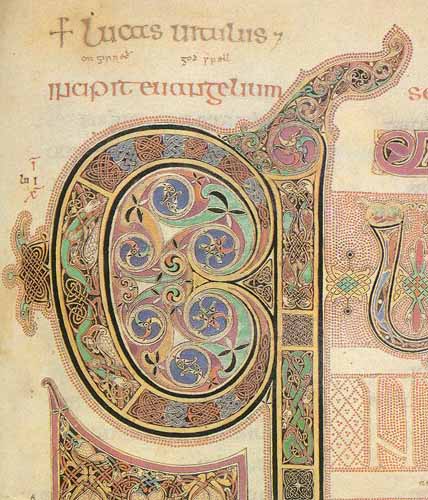CHAPTER THIRTEEN: THE ANALYSIS OF A PARALYSIS
One of the things Jesus had been reflecting on during his stay in Bethany is the different mission and ministry strategies that would be required in Judea in proclaiming the good news about the inbreaking Dominion of G-d. He had concluded that while aphoristic wisdom and parables would be appropriate in the Galilee, this was unlikely to be very effective here in Judea. He would need to be more direct, even if he chose to use wisdom speech to convey his message. Another decision that Jesus made was that while he would perform miracles in and around Jerusalem even on Shabbat if the need arose, he was going to avoid doing exorcisms here. The atmosphere in and around Jerusalem was too highly charged already, due to the presence of a brutal procurator, Pilate, and exorcisms could produce panic, hysteria, and more to the point zealotic activity, which Jesus did not want to encourage.
The Zealots had so demonized the Roman rulers as the incarnation of evil in their midst, that exorcisms in the very arena where they most wanted to over-throw the overlords could be seen as an invitation by Jesus to take violent action. If the Devil was being overthrown spiritually by exorcisms and the captives liberated, then surely, went the logic, it was time to overthrow the surrogates of Satan like Pilate and his minions and liberate the politically oppressed as well.
Jesus understood the volatility of the situation, and for good measure to make sure he would continue to understand it, he would recruit at least a couple of disciples who had been involved at one time or another with the Zealots— a man named Simon, and a Judean Jew named Judas. Jesus wanted a cross section of primary disciples which reflected the cross-section of Jews that would be a part of G-d’s coming Dominion, including representatives of those considered on the margins or edges of civilized pious society— tax collectors, sinners, and yes zealots.
Judas had in fact been a part of the extreme element of the Zealots, the so called ‘sicarii’ ‘the dagger men’ or hit men prepared to take up arms and use them against Romans, like bandits or terrorists would. This is where his nick name, Iscariot, had come from. Judas had organizational skills, and in particular he had been one who could raise and manage money for the Zealots. Jesus knew it was a risk to recruit someone like Judas into his inner circle, but the good news of non-violent liberation could hardly have a better testimony than from a formerly violent man who had been changed, transformed by the good news.
These were the thoughts Jesus had as he walked down the Mount of Olives, down to the Kidron valley and around to the sheep gate on the northwestern side the city of Jerusalem. There was a pool called Bethzatha or Bethesda. It was one of the many pools and cisterns around Jerusalem, some of them fed by springs, where water was allowed to collect both within and outside but near the city walls. During the summer months such places were especially in demand since there was no rain throughout the summer in Jerusalem.
The pool had five porticoes. In these lay a multitude of those who were sick, blind, lame, and withered. There was a belief that the waters, if stirred up by an angel, could heal a person of what ailed them. There was one man there who had been ill for thirty-eight years. When Jesus saw him lying there, and knew that he had already been a long time in that condition, he said to him,
“Do you wish to get well?”
The sick man answered Him, “Sir, I have no man to put me into the pool when the water is stirred up, but while I am coming, another steps down before me.”
Jesus said to him, “Stop making excuses. Get up, pick up your pallet and walk.” Immediately the man became well, and picked up his pallet and began to walk.
Now it was Shabbat when Jesus did this, and so some of the Jewish authorities were saying to the man who was cured, “It is Shabbat, and it is not permissible for you to carry your pallet.” But he answered them, “He who made me well was the one who said to me, ‘Pick up your pallet and walk.'” They asked him, “Who is the man who said to you, ‘Pick up your pallet and walk’?” But the man who was healed did not know who it was, for Jesus had slipped away while there was a crowd in that place. Jesus did not want credit for the healing, nor did he wish to use it to prove to anyone who he was. He simply wanted the man to get the cure.
Afterward Jesus found the man in the temple precincts and said to him, “Look. You have become well; do not sin anymore, so that nothing worse happens to you.” The man went away, and told the Jewish authorities that it was Jesus who had made him well. This was one of the reasons some of the Jewish authorities began to make plans to deal with Jesus, if he returned to Jerusalem. But Jesus, knowing what was in their hearts and minds, had slipped out of town and headed back to Galilee, this time by the Jericho road.
As he was traveling down the precipitous and winding road from Jerusalem to Jericho, which drops several thousand feet in the span of only twenty miles, leading down to the lowest city on earth, Jesus found himself traveling with some priests and Levites, and their experts in the Mosaic Law. Many such men commuted from Jericho to Jerusalem and back again because they could not afford to live on Mt. Zion where Caiaphas and other of the more well to do priests and Levites and scribes lived. One of the experts in the Law, a young man with a keen mind for legal distinctions and problems struck up a conversation with Jesus on a subject that was frequently debated, namely what was meant by the term ‘neighbor’ in the Mosaic Law. More particularly he was concerned to get clarity on who did not count as his ‘neighbor’, which he had some ideas about.
“Teacher,” the young man said to Jesus, “what must I do to inherit everlasting life?” “What is written in the Law?” Jesus replied. “How do you read it?” He answered: ” ‘Love the Lord your God with all your heart and with all your soul and with all your strength and with all your mind’; and, ‘Love your neighbor as yourself.'”
“You have answered correctly,” Jesus replied. “Do this and you will live.” But the lawyer wanted to justify himself, so he asked Jesus, “And who is my neighbor?”
In reply Jesus said, “Let me tell you a story of relevance to our current travels:
“A man was going down from Jerusalem to Jericho, when he fell into the hands of robbers. They stripped him of his clothes, beat him and went away, leaving him half dead. A priest happened to be going down the same road, and when he saw the man, he passed by on the other side. So too, a Levite, when he came to the place and saw him, passed by on the other side. But a Samaritan, as he traveled, came where the man was; and when he saw him, he took pity on him. He went to him and bandaged his wounds, pouring on oil and wine. Then he put the man on his own donkey, took him to an inn and took care of him. The next day he took out two silver denarii and gave them to the innkeeper. ‘Look after him,’ he said, ‘and when I return, I will reimburse you for any extra expense you may have.’ Which of these three do you think was a neighbor to the man who fell into the hands of robbers?”
The expert in the law was shocked by this story, for he worked for and with priests and Levites, and he had definite negative feelings about Samaritans and their lack of proper Jewish piety. But he realized Jesus had backed him into a specific corner with this story, and so gritting his teeth and grimacing, he reluctantly answered: “I suppose it was the one who had mercy on him.”
Jesus told him, “Go and do likewise.”
“Go and be like a Samaritan? But there are no good Samaritans, they are our enemies!” said the lawyer with some feeling.
“Well then,” replied Jesus, “G-d wants you to love your enemies as well as your friends, and my story in any case was suggesting how you need to be a neighbor to everyone created in the image of G-d.”
The lawyer found this story so troubling and scandalous that he immediately broke off the conversation and went to the other side of the road, and began chatting with one of his Levite friends. Jesus for his part picked up the pace and got to Jericho before the lawyer and his friends, immediately crossing over the Jordan, and heading north once more on the main road. He could see that he would need to keep moving around, or else change his message and methods. But he was not going to do the latter, for Abba had demanded of him that he tell one and all the final saving activity of G-d, G-d’s dominion was invading their space, their place, their minds, and their hearts.


